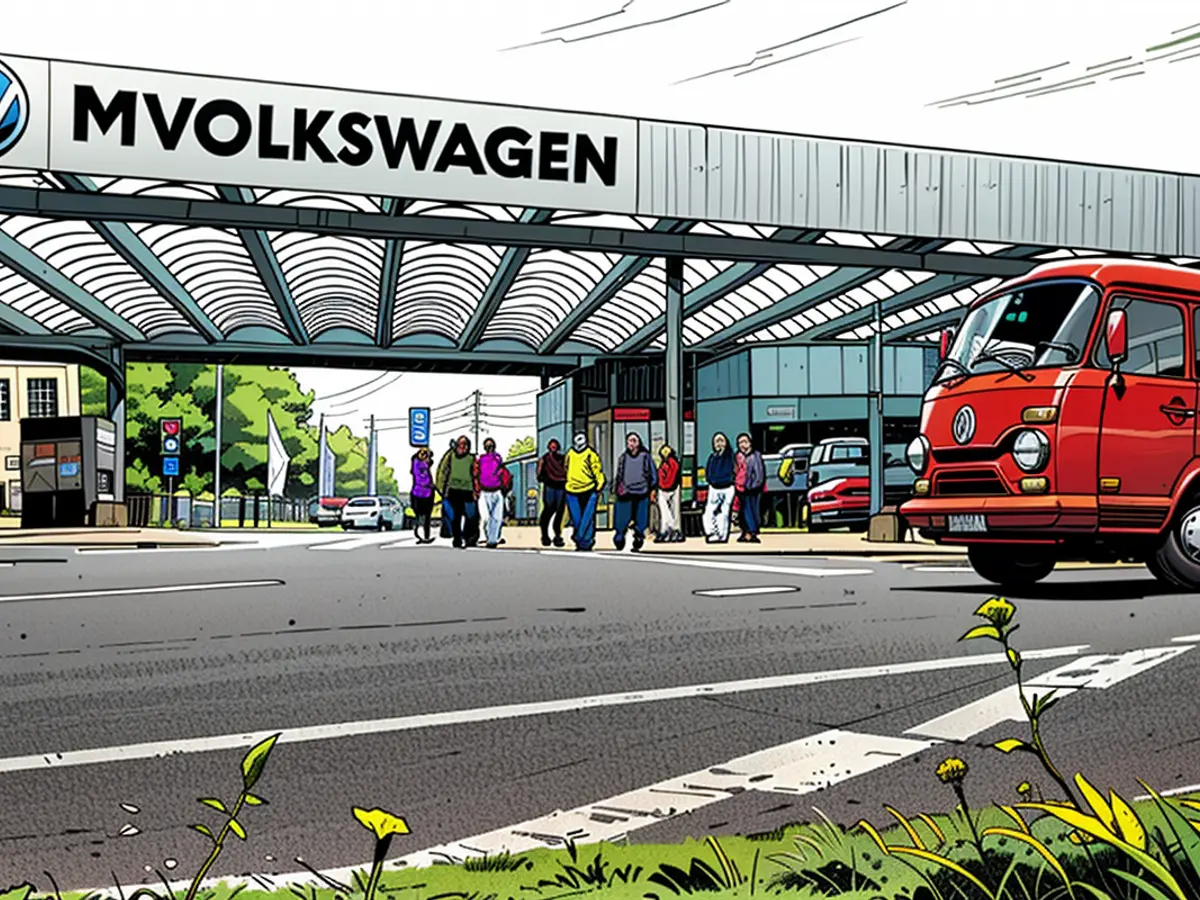- VW Saxony's savings rate encountering concerns and resistance.
There was chatter about a strong response when Volkswagen Group announced early in the week that they were strengthening their cost-cutting strategies. Potential plant closures in Germany were also mentioned. Saxony was included in this wave. With its large electric car plant in Zwickau, engine plant in Chemnitz, and Transparent Factory in Dresden, there are three significant locations in the state. Moreover, numerous Volkswagen suppliers rely on it. Volkswagen employee representatives are rallying and announcing heated meetings.
An intense staff meeting is scheduled for Thursday at the Zwickau plant. Volkswagen brand CEO Thomas Schäfer is expected to be present. He might receive an unfavorable reception in Saxony: actions are being planned, as stated in works council circles. "If the workforce isn't vocal now, when then?" In Chemnitz, employees are set to gather on September 9th. Wednesday's works meeting in Wolfsburg was met with sharp protests.
Europe's largest car manufacturer announced on Monday that they would tighten their cost-cutting approach for the core brand Volkswagen due to the deteriorating situation. Plant closures in Germany and layoffs for operational reasons are no longer off the table.
It's still unclear to what extent Saxony will be affected by these cuts. "All speculation is just speculation," said the works council in Zwickau. They stand firm by the statement of the group works council chairwoman Daniela Cavallo that no plant closures will occur with the workers' council's approval. Due to this "absolute unity in co-determination" nationwide, the mood in Saxony is hostile. According to company figures, around 11,000 people work for Volkswagen in the state.
Volkswagen is experiencing sales difficulties. Even the demand for electric cars has decreased. Volkswagen invested one billion euros to transform Zwickau into a pure electric mobility site. The then-Federal Chancellor Angela Merkel (CDU) attended the start of series production for the ID.3 in autumn 2019.
However, the expected success did not materialize. Since this summer, only two-shift operations have been running in Zwickau, night shifts are no longer necessary due to insufficient demand. Temporary employee positions have been reduced. It was estimated that 360,000 vehicles could be built in Zwickau annually, but in 2023, it was only 240,000.
Furthermore, not only Volkswagen itself is anxious following the board's announcements, but suppliers are concerned as well. In South West Saxony, around 50,000 employees are dependent on the automotive industry, stated Dirk Vogel from the industry network AMZ. This includes parts suppliers as well as service companies.
Volkswagen now has some homework to do. According to Vogel's estimation, the Chemnitz engine plant is not under discussion, as it is well-utilized. However, e-mobility remains an importance. Now it's about shaping the next two to four years sensibly in the Zwickau plant, said Vogel. The suppliers will stand by the car manufacturer's side.
The anticipated staff meeting at the Zwickau plant on Thursday will likely be tense, given the prospective changes in Volkswagen's strategies. With the potential impact of these changes in Saxony still uncertain, the works council in Zwickau has emphasized that no plant closures will occur with their approval.








